Not Valid in cases of periodontal disease.
Wisdom Tooth Extractions – Cocoa Beach, FL
Removal Today to Avoid Pain Tomorrow
Wisdom tooth removal is one of the many signs that you’re reaching your older teens or early twenties. While this process may not be your favorite rite of passage, wisdom tooth extractions in Cocoa Beach are necessary to keep your smile healthy and beautiful. Dr. Gary C. Nawrocki has decades of experience with wisdom tooth extractions to provide you with comfortable and expert care. Keep reading to learn more about why we may recommend wisdom tooth extractions in Cocoa Beach, FL.
Why Choose Nawrocki Dental of Cocoa Beach for Wisdom Tooth Extractions?
- Sedation Available for Anxious Patients
- Same Day Emergency Dental Treatments
- Friendly Dentist Using the Latest Technology
What Are Wisdom Teeth?
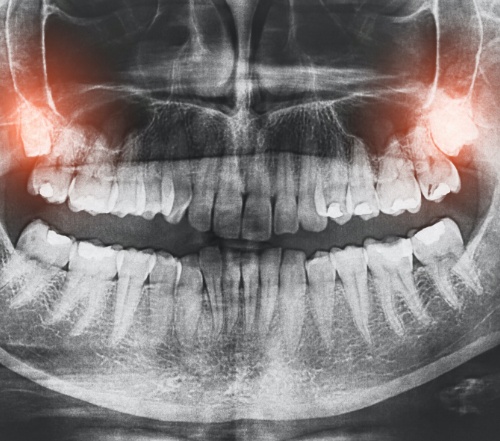
Wisdom teeth are your 3rd set of molars (the teeth closest to the back of your mouth) that erupt during your late teens or early twenties. They got their name from the Victorians who believed that this stage of your life is the age of wisdom. While these teeth used to be necessary for our ancient ancestors, our improved diets and oral health have made them essentially obsolete.
Why Are Wisdom Teeth Removed?
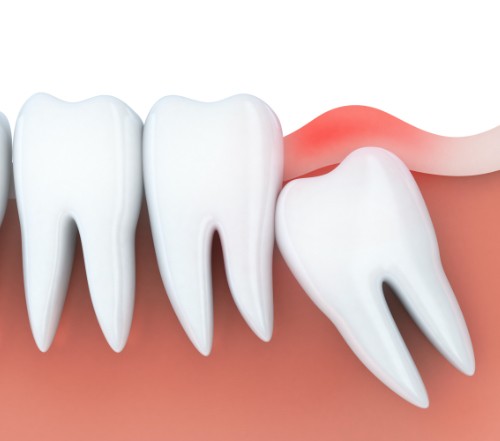
Because wisdom teeth are typically unnecessary for your oral health, they can be extracted without any negative impact to the look, feel, and function of your smile. Dr. Nawrocki may recommend getting your wisdom teeth extracted for some of the following reasons:
- Crowding: Because there typically isn’t tooth loss before your early twenties, these teeth can cause crowding. This leads to changes in your appearance, the function of your smile, and it also makes it harder to clean your teeth.
- Impaction: Wisdom teeth often cannot erupt fully because of the lack of space. This causes the teeth to come in at incorrect angles, which affects your whole smile.
- Misalignment: The crowding and impacted teeth can lead to misalignment, which will require additional orthodontic treatment.
How Are Wisdom Teeth Extracted?
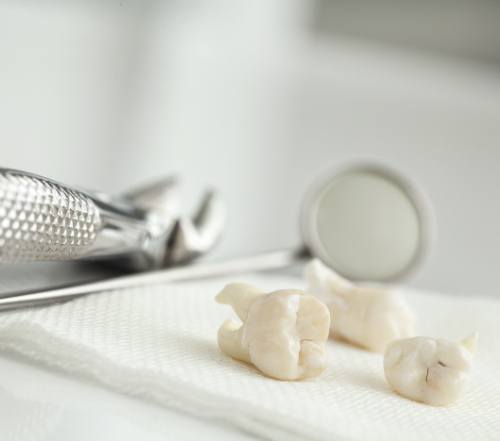
Before the process starts, Dr. Nawrocki will make sure you’re numb, comfortable, and relaxed using anesthesia. If your teeth are fully erupted, he can easily remove them by simply pulling them. However, most wisdom tooth extractions are not this simple. Sometimes, he will have to make small incisions to reveal more of your tooth, which allows extraction. He will evaluate your wisdom teeth and provide a safe extraction no matter how your teeth are erupted.
What Happens After Wisdom Tooth Removal?
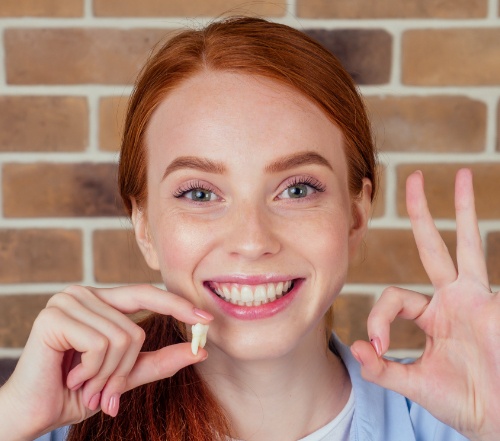
After your wisdom teeth are a removed, a trusted friend or family member will drive you home to help with your recovery. You can use gauze on the affected areas to absorb any blood during the first few days. You may also notice swelling, which can be eased by using a cold compress. We recommend using ice packs in 20-minute intervals, 20 minutes on your face and 20 minutes off during the first 48 hours after treatment. Lastly, take the medication that we give you and make sure to get a lot of rest. If pain or discomfort doesn’t subside after a week, contact our dental office.
Wisdom Tooth Extractions FAQs
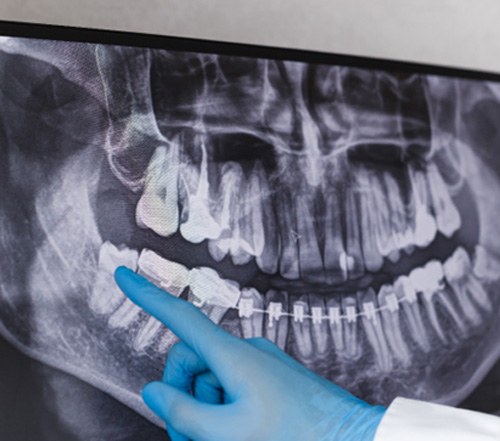
Why Are Wisdom Teeth Called That?
At first glance, it can seem odd that third molars are called “wisdom teeth.” Such pearly whites cause problems and thus don’t appear wise. Well, there’s a suitable reason for their title.
You see, these teeth don’t emerge until early adulthood (i.e., from 17-25 years old). That means a person is at an age of wisdom when they erupt. Since the chompers only show up when you’re “wise,” they gained the nickname “wisdom teeth.” This label has been around since at least the 19th century.
Is Wisdom Tooth Removal Painful?
Luckily, wisdom tooth removal doesn’t hurt. Dentists work to ensure it’s a painless process. That way, your treatment will be smooth and comfortable.
Ultimately, the dentist will numb your mouth before the surgery. (They’ll use a local anesthetic.) You won’t sense any aches during the procedure. At most, you might feel slight pressure as the dental team works on your tooth. (The dentist can also add sedation to this step, limiting your ability to feel pain.)
Of course, you may feel a bit sore after the removal. That’s a common symptom to have post-surgery. However, the effect is temporary and fades quickly. You’ll feel normal within a week if you follow the aftercare guidelines.
Do Wisdom Teeth Stitches Dissolve?
Yes, dentists stitch the treatment site after wisdom tooth removal. This measure stabilizes the tissue where incisions are made. However, the stitches often do dissolve on their own.
That said, the stitches don’t just go away immediately. It can take a few weeks or even a month for them to dissolve. The final timeframe will depend on factors related to your extraction. These might include the severity of treatment, as well as the type, material, and size of the stitch.
Still, there are exceptions where the stitches don’t dissolve. Those used by your dentist may not have such a feature. In that case, you’ll attend a follow-up visit to have the stitches removed. This appointment often takes place 7-10 days after the removal.
How Soon Can I Eat After Wisdom Teeth Removal?
After wisdom tooth removal, you won’t have to wait long to eat. You'll only need to do so for an hour or two. During that time, though, you should keep the gauze pads in place. Doing so will slow down any bleeding.
When the wait is over, follow your dentist’s instructions on what you can eat. The first will likely be to stick to liquids on the first day (without using straws). For a couple of days afterward, you may only get to have soft foods. You can switch to heartier foods once you pass the 5-day mark. Once it’s been a week since your extraction, you should be ready to resume a regular diet.




